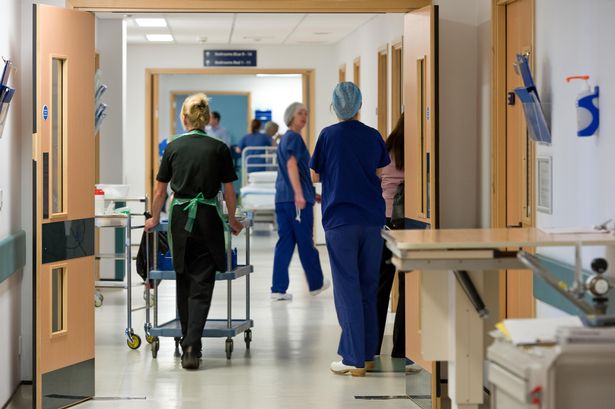The guidance issued earlier this year regarding the treatment of patients in hospital corridors has sparked intense criticism from leading NHS emergency doctors, who have denounced it as “nonsensical,” “dangerous,” and “out of touch” with the realities of the current healthcare crisis. They argue that normalizing corridor care not only compromises patient safety and dignity but also creates a hazardous working environment for healthcare professionals. The guidance, intended to provide a framework for managing overflowing emergency departments, has instead been interpreted as an acceptance of substandard care, effectively institutionalizing a practice that should be an absolute last resort in extreme circumstances. Critics argue that this approach fails to address the root causes of overcrowding and instead attempts to manage the symptoms of a failing system. This, they fear, will lead to further deterioration in the quality of care and potentially contribute to avoidable adverse events.
The core concern of the protesting doctors centers around the significant risks associated with treating patients in corridors. These areas lack the essential equipment and privacy necessary for safe and effective medical care. Patients in corridors are exposed to increased risks of infection, delays in treatment, medication errors, falls, and breaches of confidentiality. Furthermore, the noisy and chaotic environment of a busy corridor can exacerbate patient anxiety and distress, particularly for vulnerable individuals such as the elderly or those with mental health conditions. The lack of dedicated monitoring equipment and limited access to emergency resources further compounds the safety concerns, potentially leading to delayed intervention in critical situations. Doctors argue that the guidance effectively legitimizes a practice that compromises fundamental principles of patient care and undermines the ethical obligations of healthcare professionals.
Beyond the immediate risks to patients, the normalization of corridor care also places an undue burden on already overstretched NHS staff. Working in such a challenging environment increases stress, reduces efficiency, and hinders effective communication between healthcare teams. The lack of designated workspaces and the constant interruptions inherent in a corridor setting can lead to errors in documentation, delays in administering medication, and difficulties in coordinating care. This, in turn, contributes to staff burnout and moral distress, further exacerbating the workforce crisis within the NHS. The guidance, critics argue, not only fails to address these concerns but also perpetuates a cycle of declining standards and increasing pressure on healthcare professionals.
The controversy surrounding the corridor care guidance highlights the deeper systemic issues plaguing the NHS. Years of underfunding, coupled with increasing demand and workforce shortages, have created a perfect storm, leading to chronic overcrowding in emergency departments. Critics argue that the focus should be on addressing these underlying problems rather than attempting to manage the overflow by resorting to unsafe and unsustainable practices. They advocate for increased investment in healthcare infrastructure, expansion of community-based services, and strategies to improve patient flow throughout the hospital system. Without such fundamental changes, they warn, the NHS will continue to struggle to provide safe and effective care, and the normalization of corridor care will become a permanent fixture of the healthcare landscape.
The NHS emergency doctors’ vehement opposition to the corridor care guidance underscores their deep commitment to patient safety and their unwavering dedication to providing high-quality care. They see the guidance as a betrayal of these principles and a dangerous precedent that threatens to undermine the foundations of the NHS. Their call for a renewed focus on addressing the root causes of the current crisis is a plea for a sustainable and ethical approach to healthcare, one that prioritizes patient well-being and respects the professional integrity of healthcare providers. They argue that accepting corridor care as a norm is not only a disservice to patients but also a demoralizing blow to the dedicated professionals who work tirelessly to uphold the values of the NHS.
Ultimately, the debate over corridor care reflects a broader societal question about the kind of healthcare system we want and are willing to invest in. The current crisis demands a fundamental reassessment of priorities and a commitment to long-term solutions. Patchwork measures like the corridor care guidance, while seemingly offering a temporary fix, ultimately exacerbate the underlying problems and contribute to a decline in the quality of care. The voices of the frontline NHS staff, who bear the brunt of the current crisis, must be heard and heeded. Their concerns about the normalization of corridor care serve as a stark warning and a call to action for a more sustainable and ethical approach to healthcare.














